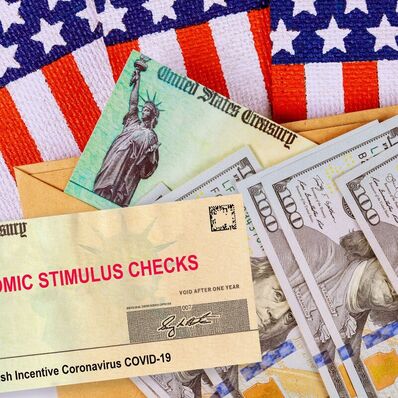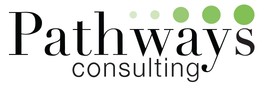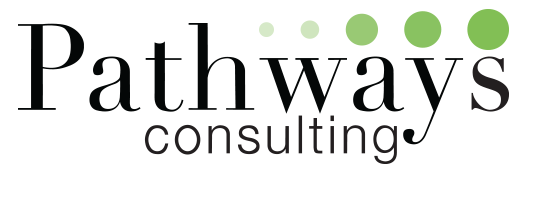 Now that the stimulus checks have all been sent out, many Americans are hesitant on using the funds. They aren't sure if the rumors they're hearing about the strings attached to them are accurate or not. Now that we have all received our stimulus checks, we are now facing a slew of rumors and myths about the money we have received. This money was welcomed with open arms, helping pay bills, and keeping food on the table for many. Thanks to Social Media and other media outlets, and just the sheer amount of information (correct or not) that's available, rumors and misinformation have been spread about the realities of our stimulus checks. We are here to set the truth straight, calm your worries, and get rid of these myths once and for all. According to AARP, once the CARES act went into action, the IRS sent out over 140 million stimulus checks. As this relief arrived and people started spending it, some hesitation did arise. The question if we will need to pay back the IRS and if these funds will be counted as part of our income in our 2020 taxes are at the forefront of this hesitation. With income and employment being so unstable, these are very understandable questions. Yes, this money is a blessing now. But, will it turn into a curse later? First and foremost it is very important to know that you will not be paying back your stimulus checks. The IRS has even come out and said on multiple occasions that this will not be something that you will have to pay back. The stimulus check, according to CNBC, did get the nickname "recovery rebate" which is one of the main reasons why this concern began. Why won't you have to repay the IRS? That is due to the nature of tax credit the IRS is considering our stimulus checks. There is a certain type of tax credit, says Wealth Hacker Report Jeff Rose, called an Earned Income Tax Credit. These credits are completely refundable. Even if you don't owe any taxes at the end of the year, if you have any earned income tax credits, you will still be receiving a tax refund. This is how the IRS is treating your stimulus checks. It is something you're owed, not something you will have to repay. This is how those who don't file for taxes, like those who receive social security, disability, and railroad retirement benefits were eligible for a stimulus check. As long as you have a social security number and you meet the income requirements to receive a single or joint filing stimulus check, you will receive a stimulus check, with no strings attached. Since the IRS is treating your stimulus check like earned income tax credit, it also will not be counted as part of your income when you file your 2020 tax return. You've received this money and it is taken care of, nothing else is required for you to do about it. Ironically, there is an opportunity for you to receive more money if your stimulus check wasn't calculated correctly by the IRS. These mistakes will most likely be caught when filing your 2020 tax return, or if you didn't claim a dependent child on your tax forms, or alert the IRS to a dependent child. You won't, on the other hand, be receiving any extra stimulus money when you file your 2020 tax return if you received the proper amount. The only way that will happen is if there is another stimulus check released, which for now is just a myth and rumor. Also, know that the stimulus check will not reduce your refund that you're owed on your 2020 taxes. You will receive every penny that you're owed, and your stimulus check will not be deducted from it or even affect it. The stimulus check will also not lower the amount you owe in taxes, either. That can be confusing since other tax credits can reduce how much you owe. But, the stimulus check will not be one of them. At the end of the day, your stimulus check will not be affecting your 2020 taxes at all. There have been some situations, according to CNBC, that some individuals have been overpaid and given more stimulus money than they should have received. If this happens, you will not have to pay that back either. This is incredibly rare though, and more often than not, is actually a scam. As we have mentioned in recent blogs, scams regarding the stimulus checks have become rampant since they were first released. If you receive a very official-looking check in the mail for more than your stimulus amount, and it is requested of you to pay back the difference in cash, certified check, money order, or in gift cards, that is without a doubt a scam. The IRS will not contact you via phone, social media, email, or texting. If you receive any messages about your stimulus checks through these platforms make sure to report them and then delete them right away. We hope this insight helps you better understand your stimulus check, and what you are expected to do with them now that you've received them. If you have any further questions about them, or about the 2019 tax date that just passed us on July 15th, please don't hesitate to reach out. We will be very busy over the next couple of weeks, as we have been leading up to the 15th, but we will try and get back to you as quickly as possible. Don't forget! If you're looking for the best tax accountant in Summerville, the best tax services in Summerville, the best Quickbooks services in Summerville, and the best payroll services in Summerville, we are still here for you. Tax season may be over for some and just starting for others, and we will be here for you no matter what!
0 Comments
With the world as we know it changing every day, we have been trying to stay on top of what's happening to help our clients and ourselves. We want to use this changing knowledge to protect our finances, our employees, to know if are eligible for assistance, and how to help our clients navigate through these strange times. Today we are going to be talking about Employee Retention Credit.
Hello, Summerville! We are so excited to see our beautiful town get back to some sense of normal. Everything about our daily and professional lives continues to change, but we are relieved to see that individuals and businesses continue to move forward. One of our main focuses these past two months has been how the current pandemic is affecting our finances. There has been a lot of help thanks to tax day being pushed back, the stimulus relief fund, and the CARES act. Each has seen its ups and downs for individuals and small businesses, bringing a mixture of relief and frustration. Most of the financial help that we hear about day to day is that for personal finances, but businesses of all sizes have needed just as much help through these difficult times. Many have been required to operate at 50% capacity due to safety protocol during the pandemic while others have been completely shut down after they were deemed nonessential. With the signing of the stimulus relief package and the CARES act, businesses of all sizes were put into consideration. Small business loans and other forms of relief were immediately put into action, although their first big wave was not received well nor handled well. Just like you as an individual, businesses have been on top of filing and working towards a way to help their companies survive so their employees have a place to come back to when this is all over. Most employers who were able to apply for any kind of assistance did so in March, but there are still opportunities and things to apply for if your company hasn't already. In this blog, we are going to be talking about one of these forms of assistance that is still available to businesses, and that is employee retention credit. WHAT IS IT? You may or may not be familiar with this term or what kind of help it provides. This is a business relief provision that encourages employers to keep employees on the payroll, even if they're not working. It helps provide relief to unemployment offices to limit the number of people applying for unemployment. It was also created to help guarantee that employers will have returning employees once they can open up again. Thanks to the creation of the employee retention credit, the government will reward your company for keeping your employees on your payroll and for deciding to choose this assistance. It is refundable tax credit taken against certain employment taxes that can equal up to fifty percent of an employee's wages that you, as an employer, are still providing. The tax credit is fifty percent of up to $10,000 in wages per employee that has continued to be paid by the employer. This means that your company can be awarded a $5000 tax credit per qualifying employee. This was created as a business relief provision. The money your company will be receiving is a refundable payroll tax credit for qualified wages that will be paid or have been paid to your employees between March 13th of this year until December 31st of 2020. ELIGIBILITY You and your company are eligible if you have been directly affected by COVID-19. If you have been forced to work at half capacity due to safety precautions, or you have been forced to shut down entirely because you are a nonessential business, you are eligible. No matter the size of your company, you are still eligible. Your company is eligible for this tax credit if your gross receipts for this current quarter are less than what they were in the same quarter this time last year. You are NOT eligible for this tax credit if you are a governmental employer, or if you are self-employed or a small business that has taken small business loans or other small business loans created to help with issues caused by the pandemic. WHAT TO KNOW Once you have decided to pick this type of relief, you can begin claiming it right away by reducing your payroll taxes sent to the IRS. If it ends up that your tax credits exceed your payroll taxes, you can ask for a refund directly from the IRS. If your company has over 100 employees, the only wages that can be obtained are of those who were full time and are not working right now. If you have under 100 employees, you can claim all of your employee's wages regardless if they are working or not. Wages up to $10,000 can be claimed, and this does include how much your company pays towards health insurance for each employee. Since you can claim 50% of this $10,000, the max credit you can receive is $5,000 per employee. The tax credit will be repaid to you after subtracting your share of your employee's social security taxes, and it will be treated like you overpaid your taxes, and it will be returned to you. THE FUTURE In comparison, the Paycheck Protection Program (PPP) was also created to offer similar benefits to businesses. You can't apply for both or receive benefits from both, you have to pick one or the other. When deciding which is best for you and your employees, always pick the aid that will help you and your employees the most, not one or the other. Since the applications for the PPP were suspended on April 17th of this year, this will now dictate your choice of what is available to you and your company. As the country slowly begins to reopen, pay close attention to how this will affect your business. You may be able to go back to work at full capacity, and you may not. There could potentially be more aid coming, we will just have to wait and see what the coming weeks will bring. If you and your company have been unable to receive any kind of benefits, keep your eyes open for this opportunity. These have been difficult and confusing times. You aren't wrong in feeling overwhelmed and confused. We where are here to support you, Summerville. You are not alone in your fight. Also don't forget, if you're looking for the best tax accountant in Summerville, the best tax services in Summerville, the best Quickbooks services in Summerville, the best IT services in Summerville, and the best payroll services in Summerville, we are still here for you. Tax season may be over for some and just starting for others, and we will be here for you no matter what!  During one of the worst times in recent history, scams should be the last thing we should be worrying about. But, the truth of the matter is that new scams surrounding the stimulus checks and government bailout programs for small businesses are starting to come to life daily, and are more powerful than ever before. Almost all of us have been anxiously awaiting the financial relief checks since the approval of the COVID-19 Relief Bill was passed. When will they get here? Who will receive them? How much will you get? On top of all these questions its a sad fact to share that during this terrifying time when we should all be standing together, stronger parties are trying to take advantage of those who have been the most affected by this devastating pandemic. Following in the footsteps of our recent blog about social security scams, we wanted to do a followup blog on the very real reality and the possibility of scams and frauds appearing right now. They could look like the relief checks, the key to getting your check quicker, small business loans, loans to help out larger companies, and even promising the cure for the pandemic all in exchange for your personal information. Waking up every day to the news right now is difficult. The unknowns are overwhelming and the lines to get toilet paper are still ridiculous. In this time that has brought so many of us together, it is almost impossible to think that yet another attack could be upon us. While many are still working or now working from home, the hauntingly large numbers of those who are now facing unemployment due to the coronavirus are staggering. This is leaving thousands upon thousands of people without a paycheck, unable to provide for their families or even pay their simple bills. Businesses, even if they are still operating on a very small level or have been forced to close or made the conscious decision to close, are also losing money by the day. When the news came that the stimulus package had been approved and relief checks would soon be on their way, a collective sigh of relief was felt among all of us. New small business loans and other relief options for companies are now in place as well. We all will slowly be getting back on our feet, in very small steps one way or another. But, while we wait for these checks, scammers could be and are now rearing their very ugly heads saying that they have your funds and to receive them you must supply them with very personal and private information. Let us stop you right now, and say that is NOT how the stimulus checks will be handled. You, the American citizen, don't have to do anything or file any kind of paperwork or to receive your stimulus check. The economic impact payment will automatically be deposited into your bank account that was connected to your 2018 and 2019 tax returns. Even if you have received your tax returns in the past as a paper check, the IRS will still deposit the funds into the account they have on file for you automatically. They will also calculate the amount you need based on your income over your 2018 and 2019 tax returns and your personal need. You won't have to do any calculations or send in any kind of paperwork. The IRS will not be contacting you in any way. The IRS did just announce that they will be releasing a brand new website that will allow you to see the status of your stimulus check when it will arrive, and it will also allow you to check the bank account or it is headed to. If there is a problem with the bank account number, you will need to change that right away on the IRS website. The IRS is making updates to their website almost daily, so if you have any questions make sure you visit their website.
We hate that these scams and schemes are very real right now. Since they are, we wanted to make sure that you are on high alert. All of these warnings also apply to small businesses and companies receiving financial support during this time. Please take comfort in the fact that the Department of Justice is forming a legal and integrative response to deal with these frauds. The US Attorney General's office has also developed a special task force along with appointed COVID-19 fraud coordinators to help deal with this situation. Here in the Lowcountry and throughout the state of South Carolina, our District US Attorney Peter M. McCoy Jr has also stated that his office and the department of justice are making this type of fraud a priority. Scary times can become scarier. But, we are here to help all of you through it. Stay alert, stay safe, and stay home. We will get through this Summerville, we know it! |
AuthorThe Pathways Team Archives
September 2020
Categories
All
|
|
(843) 261-9293
105 South Cedar St. Suite E Summerville, SC 29483 9:00am- 5:00pm, Monday- Friday |


 RSS Feed
RSS Feed
